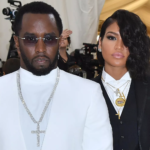Don Lemon, the weekend prime-time anchor for CNN, was on the air on Sunday night this month when the news broke that President Obama would address the nation at the unusual hour of 10:30 p.m.
By the time the news network was confirming the reports of the death of Osama bin Laden, however, Mr. Lemon had been replaced by CNN’s chief anchor, Wolf Blitzer.
“I kind of got big-footed,” Mr. Lemon said, with a knowing laugh.
Now 45, though he looks much younger, Mr. Lemon understands the television news business from long experience, gathered through jobs at such local stations as WCAU in Philadelphia, WMAQ in Chicago and WNYW in New York.
So he has no illusions about what he is getting himself into with the book he has written about his career — and life. In “Transparent,” Mr. Lemon has a lot to say about reporting for television and about journalism in general. But he knows enough about news to recognize what will get this book noticed.
“People are going to say: ‘Oh, he was molested as a kid and now he is coming out.’ I get it,” he said.
Few national television news anchors or hosts have publicly acknowledged being gay. Rachel Maddow is perhaps the best known. Her MSNBC colleague, Thomas Roberts, has also come out as gay.
Mr. Lemon has not made a secret of his sexual orientation in his work life; many of his CNN co-workers and managers have long been aware that he is gay. But he still acknowledged that going public in his book carries certain risks.
“I’m scared,” he said in a telephone interview. “I’m talking about something that people might shun me for, ostracize me for.”
Even beyond whatever effect his revelation might have on his television career, Mr. Lemon said he recognized this step carried special risk for him as a black man.
“It’s quite different for an African-American male,” he said. “It’s about the worst thing you can be in black culture. You’re taught you have to be a man; you have to be masculine. In the black community they think you can pray the gay away.”
He said he believed the negative reaction to male homosexuality had to do with the history of discrimination that still affects many black Americans, as well as the attitudes of some black women.
“You’re afraid that black women will say the same things they do about how black men should be dating black women.” He added, “I guess this makes me a double minority now.”
NBA Executive Rick Welts Comes Out
Last month, in a Midtown office adorned with sports memorabilia, two longtime friends met for a private talk. David Stern, the commissioner of the National Basketball Association, sipped his morning coffee, expecting to be asked for career advice. Across from him sat Rick Welts, the president and chief executive of the Phoenix Suns, who had come to New York not to discuss careers, but to say, finally, I am gay.
In many work environments, this would qualify as a so-what moment. But until now, Mr. Welts, 58, who has spent 40 years in sports, rising from ball boy to N.B.A. executive to team president, had not felt comfortable enough in his chosen field to be open about his sexuality. His eyes welling at times, he also said that he planned to go public.
By this point, Mr. Welts had already traveled to Seattle to share his news with another friend, Bill Russell, one of the greatest basketball players ever and the recent recipient of the Presidential Medal of Freedom. He had also met with Val Ackerman, the founding president of the Women’s National Basketball Association, in New York, and would soon be lunching in Phoenix with Steve Nash, the point guard and leader of the Suns and twice the N.B.A.’s most valuable player.
In these meetings and in interviews with The New York Times, Mr. Welts explained that he wants to pierce the silence that envelops the subject of homosexuality in men’s team sports. He wants to be a mentor to gay people who harbor doubts about a sports career, whether on the court or in the front office. Most of all, he wants to feel whole, authentic.
“This is one of the last industries where the subject is off limits,” said Mr. Welts, who stands now as a true rarity, a man prominently employed in professional men’s team sports, willing to declare his homosexuality. “Nobody’s comfortable in engaging in a conversation.”
Dr. Richard Lapchick, the founder and director of the Institute for Diversity and Ethics in Sport, and the son of the basketball legend Joe Lapchick, agreed.
“The fact that there’s no other man who has done this before speaks directly to how hard it must be for Rick to do this now,” he said.
Mr. Stern did not find the discussion with Mr. Welts awkward or even surprising; he had long known that his friend was gay, but never felt that he had license to broach the subject. Whatever I can do to help, the affably gruff commissioner said. He sensed the decades of anguish that had led the very private Mr. Welts to go public.

![Da Brat Marries Judy Dupart on 2.22.22 [PHOTOS]](https://hiphopucit.com/wp-content/uploads/2022/02/1645669184565-440x264.jpeg)
![Drake Reveals Photos of His Son Adonis [Photos]](https://hiphopucit.com/wp-content/uploads/2020/03/Drake-and-on-Adonis-HHUCIT.jpg)

![Young Thug Feat. Drake Drop – “Oh U Went” [NEW VIDEO]](https://hiphopucit.com/wp-content/uploads/2023/07/Young-Thug-and-Drake-1014x570-1-440x264.png)
![Latto Feat. Cardi B – “Put It On Da Floor Again” [NEW VIDEO]](https://hiphopucit.com/wp-content/uploads/2023/06/latto-cardi-b-1014x570-1-440x264.jpg)
![Gucci Mane Feat. Lil Baby – “Bluffin” [NEW VIDEO]](https://hiphopucit.com/wp-content/uploads/2023/06/gucci-mane-lil-baby-bluffin-video-440x264.webp)


![DJ Khaled Proposes To Nicki Minaj [VIDEO]](https://hiphopucit.com/wp-content/uploads/2013/07/khaled-proposal-nicki.jpg)







